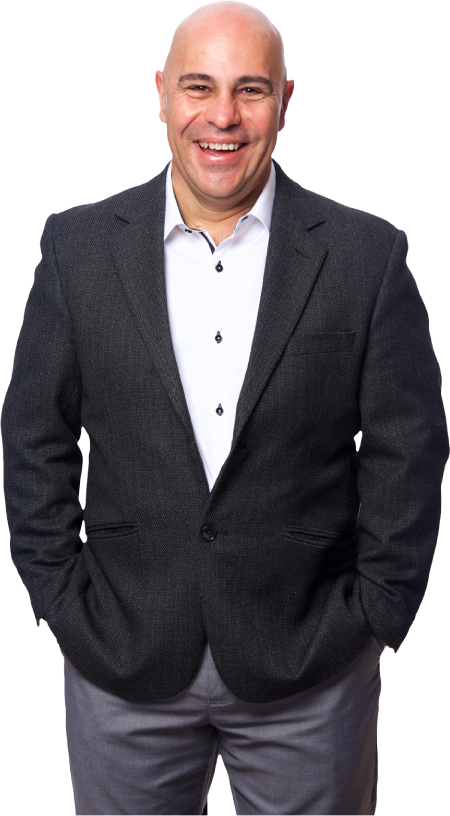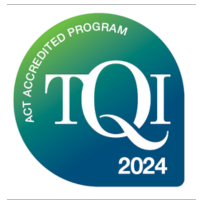What is The Accidental Counsellor Training about?
Endorsed Professional Development Training

Completing The Accidental Counsellor Created by Rocky Biasi (in person/live virtual) will contribute 6 hours and 30 minutes of NSW Education Standards Authority (NESA) Accredited PD in the priority area of Student/child Mental health addressing standard descriptors 3.3.2, 4.4.2 from the Australian Professional Standards for Teachers towards maintaining Proficient Teacher Accreditation in NSW.
Completing The Accidental Counsellor Created by Rocky Biasi (self-paced online-on- demand) will contribute 9 hours and 30 minutes of NSW Education Standards Authority (NESA) Accredited PD in the priority area of Student/child Mental health addressing standard descriptors 3.3.2, 4.4.2 from the Australian Professional Standards for Teachers towards maintaining Proficient Teacher Accreditation in NSW.
The Accidental Counsellor Training Options
You Are An
Accidental Counsellor
You have difficult conversations often in your role. Perhaps you are a member of a school staff or perhaps an allied health professional or community service worker, regardless – you support the people in your care and that can mean responding to their pain and suffering.
The problem is you have no (or little) counseling training – why should you? You are not a “counselor” and don’t do therapy and clinical counseling work. That doesn’t prevent you often being in the “front line” responding to people’s pain, upset and suffering.

Rocky Biasi
Why I Created The Accidental
Counsellor Training
Hi my name is Rocky Biasi and as a high school teacher and school counsellor (currently in private practice) I could see the value and importance in providing basic counselling training to school staff not trained as counsellors.
Thousands of school staff have completed my accidental counsellor training and increasingly other accidental counsellors including allied health professionals and community service workers have attended also.
The training is endorsed by:
- Australian Community Workers Association (ACWA)
- ACT Teacher Quality Institute (TQI)
The Accidental Counsellor Training Empowers You To Change Lives
When you complete the Accidental Counsellor Training you will:
- Feel more confident and certain in how to best respond to the person in need.
- Increase and enhance your own wellbeing and that of your client. This builds resilience.
- Connect to the person and their pain and suffering. Your client then feels safe and trusts you more. As a result transformation and healing takes place.
- Empower the client to discover their own solutions or as I like to call it (next best step). You move from giving to receiving solutions.
MODULE 1
Know the 3 Accidental Counsellor components that increase wellness, connection & influential communication.
We become Accidental Counsellors when we respond to another person’s distress. Often our desire to help can become counter-productive! When you get clarity around the Accidental Counsellor framework it makes helping people easier because you have a process and framework to guide you.
At The Accidental Counsellor Training, you’ll learn how to:
- Identify the 3 components to influence change for yourself and clients.
- Respond to a “client’s” emotional pain to facilitate healing.
- Identify wellness habits to your own life and help clients improve wellbeing.
MODULE 2
Apply The Psychology of Influence strategies to help people create transformational change in their lives.
A person is in distress. We desperately want to help them. The problem is that our “helpful interventions” can be more harmful than helpful.
This is what can happen when we rush in to help, when we tell people what they need to do to fix their problem.
Rather then telling people how to fix their problems we are much more helpful in guiding the client to identify “their next best action”. When a client identifies a possible next step (and why they need to take it) they are more empowered to take action
At The Accidental Counsellor Training, you’ll learn how to:
- Implement the key principles and concepts using Psychology of Influence strategies.
- Ask strategic questions that help the client discover “next best” actions to help move them forward.
- Focus the client on “their reason” for taking action. To be clear on their “why”. As a result the client is more motivated and inspired to take action.
MODULE 3
Create wellness habits to help you establish boundaries that make you more effective in your role.
Accidental Counsellors are also known as “helpers”. One of the biggest challenges for those in the ‘helping role’ is facing their own limits in that role.
Setting appropriate boundaries is the core of the work of helping others.
Setting boundaries ensures we do not burn out, and that our “helping” does not enable the problem to continue.
At The Accidental Counsellor Training, you’ll learn how to:
- Identify evidence based wellbeing habits.
- Create wellbeing habits for yourself and clients.
- Assess when a problem needs to be referred.
MODULE 4
Identify and implement the four essential communication aspects.
You think you are listening, understanding a person’s problem when they communicate. Yet they keep repeating themselves or come back to speak about the same problem over and over again.
These are two simple signs that indicate that while you think you are “getting them” they don’t feel the same.
How can you know with 100% certainty that you understand what is being communicated?
How can you be sure the person speaking FEELS you understand?
Understanding the four communication aspects will help you avoid this communication error
At The Accidental Counsellor Training, you’ll learn how to:
- Identify the four key communication aspects that enable you to build rapport and influence.
- Understand the communication preferences people use and as a result make them feel understood.
- Apply the 4 keys to active listening.
MODULE 5
How to establish the purpose of the interview to move the client toward future possibilities.
It can be overwhelming to know what part of the “client’s” communication to focus on.
Knowing how to quickly assess and gain clarity about the goal or aim of the interview/conversation allows focus toward a possible solution.
It’s important that the goal is something the client is engaged with, specific, achievable and within the person’s control.
At The Accidental Counsellor Training, you’ll learn how to:
- Focus the client toward future possibilities rather than focus on the past or over analyse the problem.
- Become clear about the purpose, goal and aim of the conversation.
- Determine if the goal is something the client is motivated to achieve
MODULE 6
How to Move The Client Toward Solutions With The Miracle Question.
An easy trap for an Accidental Counsellor to fall into is to become overly analytical. That is, putting too much focus on the problem and why the problem may be occurring.
What’s much more useful is to connect with the person’s pain but then “pivot” the conversation onto the “future without the problem”.
This is the goal of the “Miracle Question”. It allows the client to imagine what their day would be like if the problem was not there.
How would they be thinking, feeling and behaving?
When we have these descriptions in clear, concrete, specific terms we can focus the client on doing the things they know can make a difference
At The Accidental Counsellor Training, you’ll learn how to:
- Ask the “Miracle Question” in your own unique way.
- Unpack what the future would be like without the problem.
- Focus the client on the “next best step” for them.
MODULE 7
How to Identify Existing Strengths With The Exception Question.
Regardless of the magnitude of the problems, there are situations or times when the problem does not happen or is less severe.
These are called EXCEPTIONS to the problem.
Solutions can be unearthed by examining the differences between times when the problem has occurred and times when it has not.
Clients often simply need to do more of what is already working, until the problem no longer exists
At The Accidental Counsellor Training, you’ll learn how to:
- Help the client identify strengths – when they can manage the problem better, easier etc.
- Help the client reframe obstacles and problems. As a result the client gains new positive perspectives on an old problem.
- Create a framework that identifies the problem, looks for exceptions to the problem and the differences those exceptions have made to the client in the past.
MODULE 8
How to Identify The Next Step and Make Quick Assessments with The Scaling Question.
How useful would this be for you where zero is not at all and 10 is very useful.
That is a quick example of a scaling question.
Scaling questions can be used to assess the Client’s esteem, self confidence, investment in change, willingness to work hard to bring about desired changes, prioritizing of the problems to be solved, perceptions of hopefulness, evaluation of progress and so on – things considered too abstract to concretise
At The Accidental Counsellor Training, you’ll learn how to:
- Identify the problem to scale.
- Move a client up the scale toward their goal.
- Ask the scaling question in three different ways to gain greater impact in what the next step “up” could be for the client.
TESTIMONIAL
What Our Participants Say
IF YOU ARE WONDERING
Frequently Asked Questions
Who is the Accidental Counsellor Training For?
This training is for you if you are looking for practical skills to help you respond to the upset and distress you encounter in your role.
What is the length of the Accidental Counsellor Training?
The Accidental Counsellor Training face to face is a full day training 9am to 2.30pm. We also run shorter sessions to suit your needs. Online the training is 9.5 hours and is part of a range of mental health and wellbeing courses and resources in our online membership section.
How do I access the Training?
There are 3 ways you can access the Accidental Counsellor Training:
- Live and online with zoom video – Click here to find a date that works for you.
- Online at your pace and time.
- Designed specifically for your staff or team.
Is the training registered for professional development hours?
Endorsed professional learning with NESA, TQI and ACSWA.
What can I expect from the Training?
The Accidental Counsellor Training will help you manage your own wellbeing and self care so you can be in the best state to listen and connect to the stories or pain and distress you hear from the people you support. The training will also show you how to use Solution Focused Questions to help the person create positive change.
How much does it cost.
Click here and select if you are looking to attend a public event, do it online or host a training in-house.



